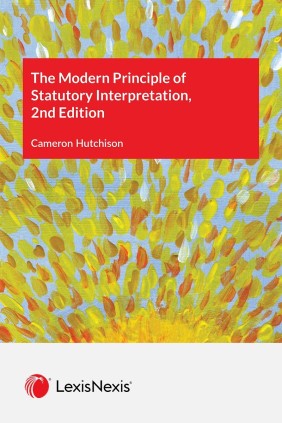
The “modern principle” is the official approach to statutory interpretation in Canada, which focuses on the language of a statutory provision in light of its purpose, intent and context. The Modern Principle of Statutory Interpretation, 2nd Edition (formerly published as The Fundamentals of Statutory Interpretation), is a must-have resource for anyone seeking to gain insight into statutory interpretation in Canada.
Written in an accessible, easy-to-understand manner, The Modern Principle of Statutory Interpretation, 2nd Edition is particularly useful because it:
What’s New In This Edition: